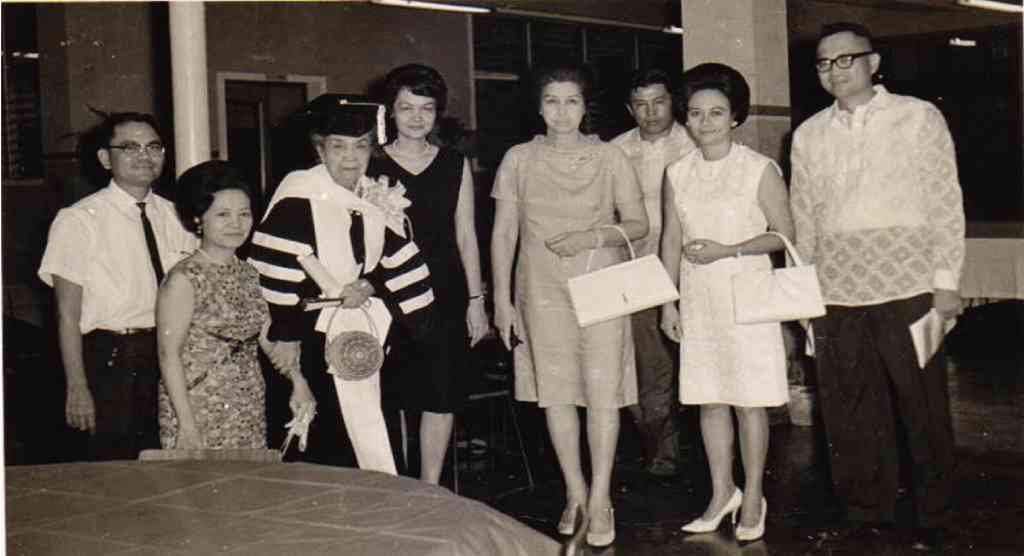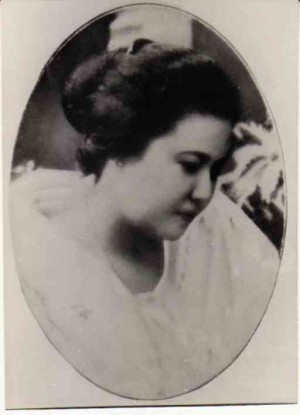Prominently displayed in the headquarters of construction giant D.M. Consunji Inc. is a copy of the company creed, which was formulated not long after David M. Consunji established the company that will be one of the biggest in the building sector.
According to the creed, the multi-billion-peso DMCI believes that “construction is a noble profession and that its activities are vital to economic development and national progress,” that “a contractor’s primary responsibility to his client is to give his best in faithful compliance with the agreement” and that the “ill-gotten violates business ethics and the ill-conceived wreaks havoc on the public good.”
The creed captures the values that the company seeks to live up to, which combined with engineering competence allowed it to go on and build some of the most iconic structures in the Philippines, starting with the Church of the Holy Sacrifice or the UP Chapel.
The UP Chapel was completed in 1955 and was the first structure to use the high-strength 3,000 psi concrete in the country, thus setting a new standard for construction and cemented Consunji’s reputation as a trailblazer in the construction industry.
The first mass in the new chapel was celebrated on Dec. 25, 1955. Close to 60 years later, the chapel remains intact and has the distinction of being the only chapel worked on by four National Artists—Architect Leandro Locsin; sculptor Napoleon Abueva who executed the imposing crucifix that dominates the chapel; painter Vicente Manansala, who interpreted the 14 stations of the cross on the walls of the chapel and Arturo Luz, who worked on the mural made of terrazzo on the chapel’s floor.
That the company was able to grow the way it has the former Public Works Secretary attributes in no small part to the lessons that he learned from his aunt, Maria Paz Mendoza-Guazon, who established many firsts and considered one of the country’s outstanding Filipino women.
His Tiya Nena was the first Filipino woman to receive a high school diploma in 1907, first female graduate of the UP College of Medicine (1912) and the first Filipino woman to receive the degree of Doctor of Tropical Medicine in 1916. She was also the first woman regent of UP, first woman to receive the Zobel Prize in Spanish Literature in 1930 and the first Filipino President of the Society for the Prevention of Cruelty to Animals (1938).
But more than her accolades, Tiya Nena was to the Consunji siblings the second mother who helped take care of them following the death of their mother when Consunji, the second of seven children, was just in high school. Their father elected to stay in their home province of Bataan as his asthma could not take the air in Manila.
It was his Tiya Nena, he says, who “broadened my mind and enlightened my views on life,” as well as helped put him and his siblings through school.
It was also his mother’s older sister who, along with his parents, inculcated in him the value that a quick profit is a weak foundation on which to build a company.
In his memoirs entitled “A Passion To Build,” Consunji, who has a degree in Civil Engineering from the University of the Philippines, says that building for him was “not about making money but putting up structures, making buildings, real things that brought real benefits to other people. That was where I derived my real satisfaction in construction.”
He says his parents and Tiya Nena taught him to love work and “to value not the quick profit but the satisfaction of doing your own work and doing it well, doing it honestly and proudly.”
His Tiya Nena, whom he considers his second mother, provided a sterling example, as she was not just gifted in medicine, she was also a lover of history and philosophy who enjoyed talking about politics and burning issues with her nephews and nieces. She was educated in the United States, London and Germany and shared her liberal views with her family, on whom she doted. Her nephews and nieces became the children she never had.
It was also Tiya Nena who gave Consunji his first break into the construction business, having asked him to manage the repair of her houses for rent and supervise additional construction.
“She awarded me a hefty 10 percent commission for every project. She was generous indeed to a neophyte in construction like me. She had the patience and love to give me the chance to start,” recalls Consunji.
To think that she was not exactly happy with his decision to strike out on his own and build a construction company. She had said that contractors did not enjoy a good reputation and she did not want her nephew to be tainted by the same brush.
Consunji, however, was determined to be a different kind of contractor, one that will be true to his promise to his clients. With that commitment, he eventually got his aunt’s support behind the company, which he established in 1954.
“I did promise her that I will not do anything to spoil the family name, even if I will be in construction. But she was really against it at the start. She did not think highly of contractors,” Consunji tells SundayBiz in an interview.
She, however, came around as Consunji started to build a name in the construction industry, primarily through the UP Chapel that caught the attention of future clients including the Ayala group, with which he will have an enduring relationship, putting up many buildings in the Makati Central Business District including the Ayala Triangle Tower I, headquarters of Ayala Corp.
Always on his mind was the lesson taught by his aunt that everything he does should serve the people and the nation. He was also always told to reward labor because they are an integral part of any company’s success.
“People must be treated fairly, all the time,” says Consunji.
“She also always told us that at the end of the day, you will be counted either among those who helped or did not help society. So always be a good example. She was really filled with the feeling that you should give back to society,” says Consunji, who turns 93 in November this year.
He carried those lessons with him throughout his long career and he is sorry that his Tiya Nena passed away before seeing him become Secretary of the Department of Public Works and Highways in 1971 and one of the most respected in the industry, eventually given many awards such as Outstanding Alumnus of his Tiya Nena’s beloved UP.
Looking back on his long career, Consunji says he would not have been able to accomplish what he had without the lessons learned from his parents and his aunt.
The best education provided inside the university can only take you so far, he says, what also influences one’s career are values learned from family, and he was lucky to have learned from the best.
Consunji, who still goes to work every day and visits the different work sites with his wife of 67 years, Fredy, says he wants the same values to be passed on to his children who have taken over the reins of the company that has expanded to other lines such as housing, water distribution and infrastructure development.
“They hold the reins now and the company will go where they want it to go,” says Consunji, “At least the creed is there to guide them.”
So will the spirit of Tiya Nena.



